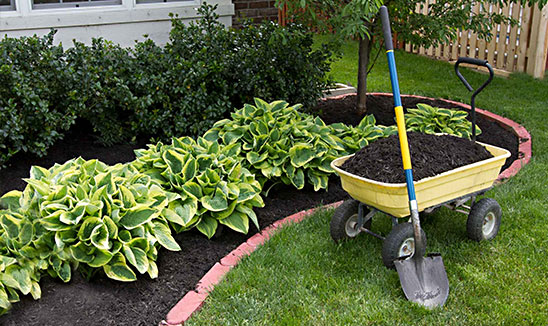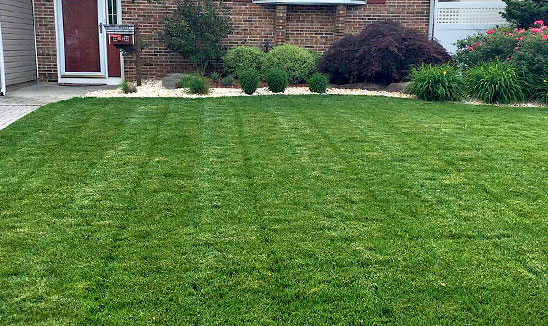We all know spring mulch is essential for your lawn and landscape’s health, thriving, and beauty, but you should not disregard winter mulching either. According to our lawn treatments experts in Ballwin, MO, winter mulches are critical for all homeowners who want to protect the soil and plants against temperature extremes and other winter conditions. Under a proper layer of winter mulch, the soil does not freeze, the roots absorb more water, and some plants don’t start growing during occasional warm spells. If you want to learn more about winter mulches, our specialists are here to share some tips!
What Plants Benefit Most from Winter Mulches?
In general, all plants could use mulch protection and insulation. However, the biggest beneficiaries are young or tender perennials, trees, and all your shallow-rooted plants. Mulch keeps the plants moist, nourished, and protected against weeds and pests in spring and summer. In winter, mulches do the same job, with the advantage of acting as an insulator.
When Is the Best Time for Application?
Our fertilization and weed control company in Ballwin, MO, recommends you start applying winter mulches only after the first killer frost of the year. Things may be different in your area, but as a rule of thumb, hard freezes occur when the temperatures drop below 27-28 degrees Fahrenheit. So the idea here is to get the timing right.
What Mulches are Best in the Winter?
When we talk about winter mulches, the best options are organic, woody materials. The list can include wood and bark chips (untreated wood, of course), straw and hay (but never in combination), shredded leaves, coarse-textured fibrous materials, evergreen boughs, branches, etc. These lightweight mulches allow air and water circulation above and into the soil, also protecting and nourishing the plants.
As application goes, follow the same rules you employ when using spring/summer mulch: a two- or three-inch layer should be enough. In addition, make sure the mulch layer does not touch trees’ bark. Finally, our lawn treatments company in Ballwin, MO, recommends you refresh the mulches likely to decompose faster (leaves, hay, straw, etc.).
Spring Removal
Some mulches – especially the woody ones – need removal in spring. You need to allow roots and tender spring growths to enjoy light and warmth without being smothered by bark and branches. The best time to remove the winter mulch is when the ground starts to thaw, and the risks of freezing have passed.
If you need help with your winter mulching activities, you can always count on our lawn treatments company in Ballwin, MO, so don’t hesitate to ask!












